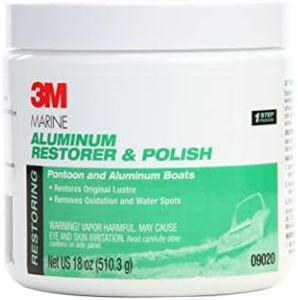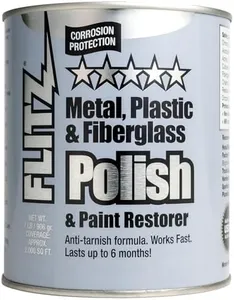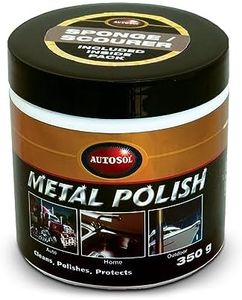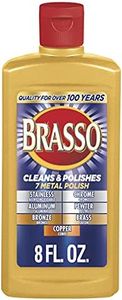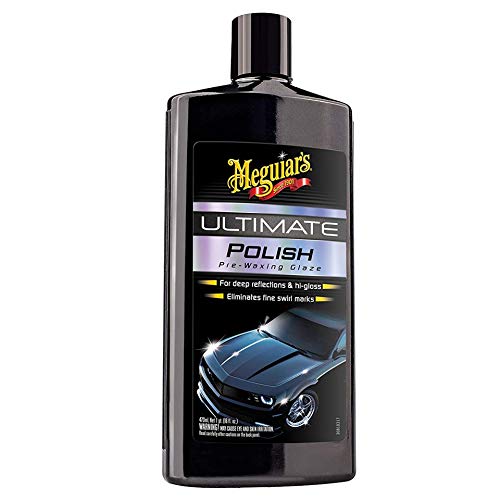We Use CookiesWe use cookies to enhance the security, performance,
functionality and for analytical and promotional activities. By continuing to browse this site you
are agreeing to our privacy policy
10 Best Metal Polishes
From leading brands and best sellers available on the web.By clicking on a link to a third party's website, log data is shared with that third party.
Buying Guide for the Best Metal Polishes
When selecting a metal polish, it's important to think about what type of metal you plan to clean or maintain, as not all polishes are suitable for every material. Understanding how different polishes work and the results they provide will help you make a better choice. You'll want a product that effectively removes tarnish, rust, or grime without damaging the metal. Think about the kind of finish you want—mirror-like shine or simply clean and protected—and whether you need a product that's simple to apply or offers extra benefits like protection against future tarnish.Compatibility with Metal TypesThis spec refers to which metals the polish is designed to work on, such as silver, brass, copper, stainless steel, chrome, or aluminum. It's important because a polish meant for one type of metal might be too abrasive or ineffective on another. Products often state their compatible metals clearly. If you have a range of metals, look for a versatile formula, but if you only need to polish a specific metal, a targeted product might deliver better results. Always match the polish to your most frequently cleaned metal to avoid damage or poor performance.
AbrasivenessAbrasiveness describes how strongly the polish can scrub away tarnish, stains, or corrosion. This is important because using something too abrasive on soft metals can cause scratches or dull the finish, while gentle polishes might not be strong enough to clean tougher grime. Light abrasives work well for delicate or decorative items, while heavier abrasives suit heavily tarnished or outdoor metals. Choose based on the item’s condition and value: use the gentlest option for prized or delicate objects and a more abrasive formula for tools, hardware, or items exposed to the elements.
Ease of UseEase of use covers how simple or labor-intensive the polish is to apply and buff away. Liquids spread easily but may require more effort to buff; creams or pastes offer control and often need less product; wipes are convenient for quick touch-ups. Consider how much time and physical effort you're willing to spend. If you plan regular polishing or have many items, a polish that works quickly and wipes away easily is ideal. If you only polish occasionally, product format may be less important.
Residue and CleanupSome polishes can leave behind a residue or require extra cleanup steps, which can be a hassle, especially for items like jewelry or kitchenware. A low-residue formula is important if you want an easier cleaning experience and less risk of streaks. Pay attention to product reviews or labels that mention residue. If cleaning up after polishing is a concern for you, prioritize products advertised as no-residue or easy-wipe.
Protection and LongevityCertain metal polishes contain protective agents that help prevent future tarnish, rust, or fingerprint marks after polishing. This spec is important if you want to maintain the shine for longer or reduce the frequency of polishing. The level of protection varies: some simply clean, while others leave a protective barrier. If your items are displayed, handled, or exposed to air often, look for polishes with built-in protection. For infrequent use or pieces stored away, this may be less critical.
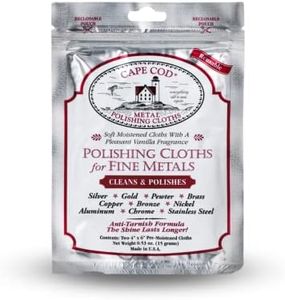
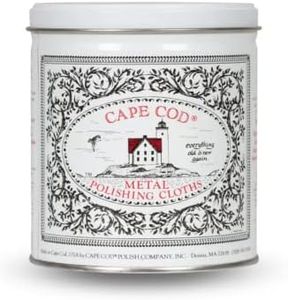
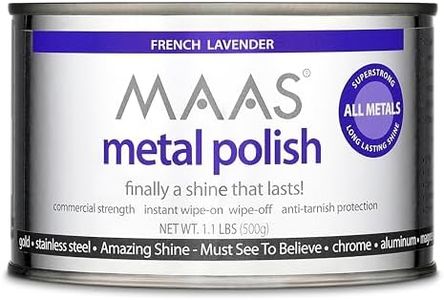
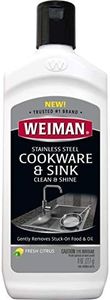
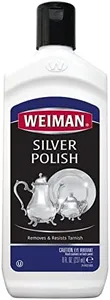

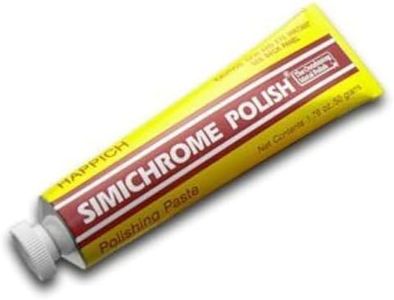
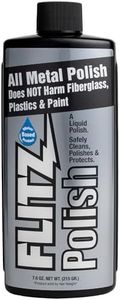
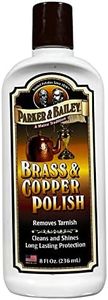
![Power UP Japan [Power-up Japan] Metal Polish Blue Magic 550g [Part Number] BM500](https://images-proxy.bestreviews.guide/X-QDH1wiQS73WWwoL-C-M48Qqto=/0x300/https://m.media-amazon.com/images/I/51pFXFZx0AL._AC_CX679_.jpg)
